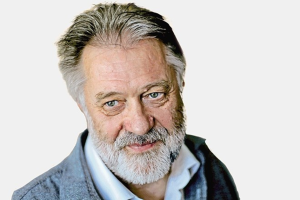Keynote speakers
Alex Gillespie
Alex Gillespie is a Professor of Psychological and Behavioural Science at the London School of Economics, a Professor at the Oslo New University, and a Co-Editor in Chief of Journal for the Theory of Social Behaviour. His research examines communication problems, especially speaking-up, defensiveness, misunderstandings, distrust, and problems of listening to and learning from challenging feedback. Currently he is writing about pragmatism and methodology.

Pragmatism: Humble theory for an uncertain world
Psychology’s dominant positivist epistemology has resulted in the replication crisis, fractured findings that are artefacts of the methods used, and irrelevance in the face of contemporary challenges. Pragmatism, an epistemology created by psychologists but largely ignored by psychologists, offers an alternative. Pragmatism puts human activity, and especially the experience of uncertainty, at the centre of knowledge. It replaces the idea of theory as a mirror of nature with the idea of humans navigating the vagaries of the future equipped only with their experience of the past. It leans into uncertainty and tasks psychologists with empowering people to make their own futures. Yet, with such a world-making focus comes inescapable ethical responsibilities for what we choose to research.
Sanne Akkerman
Sanne Akkerman is a Professor of Educational and Learning Sciences at Utrecht University. She has been studying lifewide interest and identity development during adolescence and professional life, the role of educational, scientific and societal partnerships to support intrapersonal, intercultural and interdisciplinary processes of boundary crossing and is currently concerned with new understandings of the position and purpose of education and science in society.

Educational and learning sciences: Theory and research in the midst of motion
There are many accelerating developments in the world that sincerely worry us. Education seems to be the right place for upgrowing youth to make new sense of all that happens and matters in motion, to see new possibilities and ways to act where needed. Yet, education too seems to be a practice that has fallen prey to outside control and productivity. Sadly, educational and learning sciences make things worse by producing ahistorical and dehumanizing theories and research. I want to propose how social sciences can reengage again with the world it studies and it is already part of, through an uncomfortable, but necessary process of what I have been referring to as ontological synchronisation.
Rastko Močnik
Rastko Močnik, retired professor of sociology at the University of Ljubljana, visiting professor at the Faculty of Media and Communications, Belgrade. Doctor honoris causa at the Plovdiv University Paisy Hilendarski. Recent publications: Theory with Ideology, 2019 (in Serbian); Writings on Contemporary Capitalism, 2016 (in Croatian); Organized memory and popular remembering: The encounter of Yugonostalgia theories with socialism, Memory Studies, 15(5), 2022 (with Maja Breznik). In the past, his interests were theoretical psychoanalysis and theory of ideology. Currently researching restoration of capitalism in post-socialist countries, Yugoslav socialist federation, contemporary capitalism. He unsuccessfully opposed the destruction of the Yugoslav federation and Slovenia’s entry into NATO.

Theory in action
To involve theory in social action entails the translation of theory into ideology as a social tie. However, epistemologists like Bachelard teach us that theory begins when it breaks away from the “opinion”, that is, as Althusser puts it, by performing an epistemological break. It follows that our problem is how to save theoretical practice from its solipsistic closure.
Curiously, there is no proper theoretical articulation of theory and social engagement in Marx, nor in Freud. Freudian clinic, one might say, is theory in action. However, it shuns social engagement and confines itself to the realm of an individual psyche. Conversely, Marx who, while young, called for a passage à l’acte of philosophy, keeps his theory well outside of the individual consciousness. For Marx, what objectively, although deceptively, appears “on the surface of society”, directly appears also “in the ordinary consciousness of the agents of production”. Ideology takes on an objective existence, while its subjective mechanisms remain obscured under a mechanistic phraseology. In the same vein, Althusser’s intuitions on “ideological interpellation” remain an unfinished task.
A first approach to our problem will be to examine how the second generation of Freudians, well aware of the revolutionary nature of psychoanalysis, and of the historical emergency of a social revolution, practiced their theory as social engagement. The inverse perspective of a revolutionary Marxist engagement with Freudian theory might then indicate yet another way of articulation of theoretical practice with socially transformative practice.
In conclusion, we hope to outline an articulation between theory and ideology, between social and psychism, without embarking on a dubious export-import of concepts from one epistemic continent to another.
Thomas Teo
Thomas Teo is a professor of psychology in the Historical, Theoretical, and Critical Studies of Psychology Program at York University, Toronto, Canada. His research has been meta-psychological to provide a more reflexive understanding of the foundations, trajectories, and possibilities of human subjectivity within the psychological humanities. He is co-editor of the Review of General Psychology (SAGE), editor of the Palgrave Studies in the Theory and History of Psychology, and co-editor of the Palgrave Studies in Indigenous Psychology. He is Fellow of the Canadian Psychological Association and the American Psychological Association and has a research record with more than 340 academic publications, refereed and invited presentations.

Why EDI matters as a theoretical-psychological topic: Ontic, epistemic, and ethical reflections
Equity, diversity and inclusion (EDI) initiatives have come under attack in recent years to the point that offices at universities have been eliminated or banned. Beyond organizational problems, it is argued that EDI has philosophical significance in a discipline that has neglected equity, diversity, and inclusion at all stages of research. Using examples from the past and present, the presentation identifies explicit and implicit theorizing in the project of psychology. After challenging models of human nature in psychological science, a series of interrogations are proposed that aid in improving research practices in psychology. It is argued that EDI as an epistemic project can aid in overcoming white epistemologies and improve psychological knowledge. Consequences of omissions in epistemologies of neglect and ignorance are discussed. Theorizing in psychology is strengthened when EDI is understood in terms of onto-epistemic categories in all contexts of the research process and when combined with autoepistemology. However, it is suggested that calls for EDI are insufficient when they do not address concrete existing power differentials, including in international research, and that a true global psychology beyond ethnocentrism needs to reflect on how dominant approaches may be embedded in ideas of supremacy. Difficulties in discussing topics of academic privilege are outlined, while onto-epistemic changes that do not disadvantage or ignore groups of people, and research practices that move beyond problematization and exclusion are presented. Ideas for a discipline and practice of psychology beyond a narrow horizon are presented.
